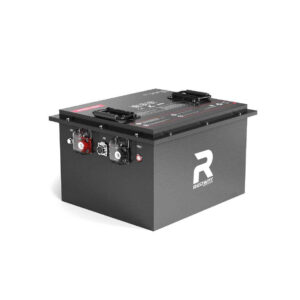Where Can I Find Reliable Car Battery Replacement Services Near Me?
Common signs include dim headlights, slow engine cranking, dashboard warning lights, swollen battery case, and age over 3-5 years. Test voltage with a multimeter (below 12.4V indicates low charge). Many auto shops like AutoZone offer free battery testing to diagnose issues accurately before replacement.
Extended testing methods provide deeper insights into battery health. Load testing measures performance under simulated starting conditions, while conductance testing evaluates internal plate degradation. Seasonal changes often reveal hidden weaknesses – a battery that struggles in sub-freezing temperatures may pass summer tests but still require replacement. Many drivers overlook parasitic drain from aftermarket accessories (GPS trackers, dash cams) that accelerate battery depletion. Regular maintenance like cleaning corrosion from terminals with baking soda solutions can extend lifespan, but recurring issues suggest replacement urgency.
| Test Type | Optimal Result | Action Required If Failed |
|---|---|---|
| Voltage Check | 12.6V-12.8V | Charge or replace |
| Load Test | 9.6V+ under load | Immediate replacement |
What Factors Affect Car Battery Replacement Costs?

Costs range from $100-$300+ depending on:
– Battery type (AGM, lithium, flooded)
– Cold cranking amps (CCA) rating
– Brand (Optima, DieHard, Duralast)
– Labor fees ($20-$50 for installation)
– Core charge refunds
– Vehicle compatibility (EV/hybrid batteries cost more)
What Happens if a LiFePO4 Battery Gets Wet?
Premium AGM batteries typically cost 2-3 times more than standard flooded models but offer longer service intervals and vibration resistance. Luxury vehicles with complex electrical systems often require OEM-approved batteries to maintain warranty coverage. Regional pricing variations occur due to transportation costs – coastal areas generally have lower prices than remote locations. Some retailers offer price matching programs, while others bundle free installation with battery purchases during seasonal promotions.
Can I Replace My Car Battery Myself Safely?
DIY replacement requires:
1. Safety gloves/glasses
2. Wrench set for terminal removal
3. Proper disposal of old batteries
4. Memory saver for electronics
However, professional installation ensures correct fitment, warranty compliance, and avoids damage to sensitive electronics in modern vehicles.
What Batteries Do Cell Phone Towers Use? A Comprehensive Guide
Modern vehicles with advanced driver-assistance systems (ADAS) often require recalibration after battery replacement, a process typically needing specialized equipment. Incorrect installation can trigger fault codes in power distribution modules or damage alternator components. Always consult your owner’s manual for specific vent tube requirements and terminal orientation. For hybrid vehicles, the high-voltage system requires professional shutdown procedures before accessing the 12V auxiliary battery.
“Modern start-stop systems triple battery replacement frequency. We recommend AGM batteries for these vehicles – they handle deep cycles better than traditional flooded batteries.”
– Michael Torres, Certified Master Automobile Technician (ASE)
FAQ
- Q: How long does battery replacement take?
- A: Most installations take 15-30 minutes. Mobile services may require 1-2 hour scheduling windows.
- Q: Can a dead battery damage my alternator?
- A: Yes. A failing battery forces the alternator to overwork, potentially causing $400-$800 in repair costs.
- Q: Do electric cars need traditional battery replacements?
- A: No. EVs use lithium-ion traction batteries lasting 8-15 years, separate from the 12V accessory battery that may need replacement every 3-5 years.
